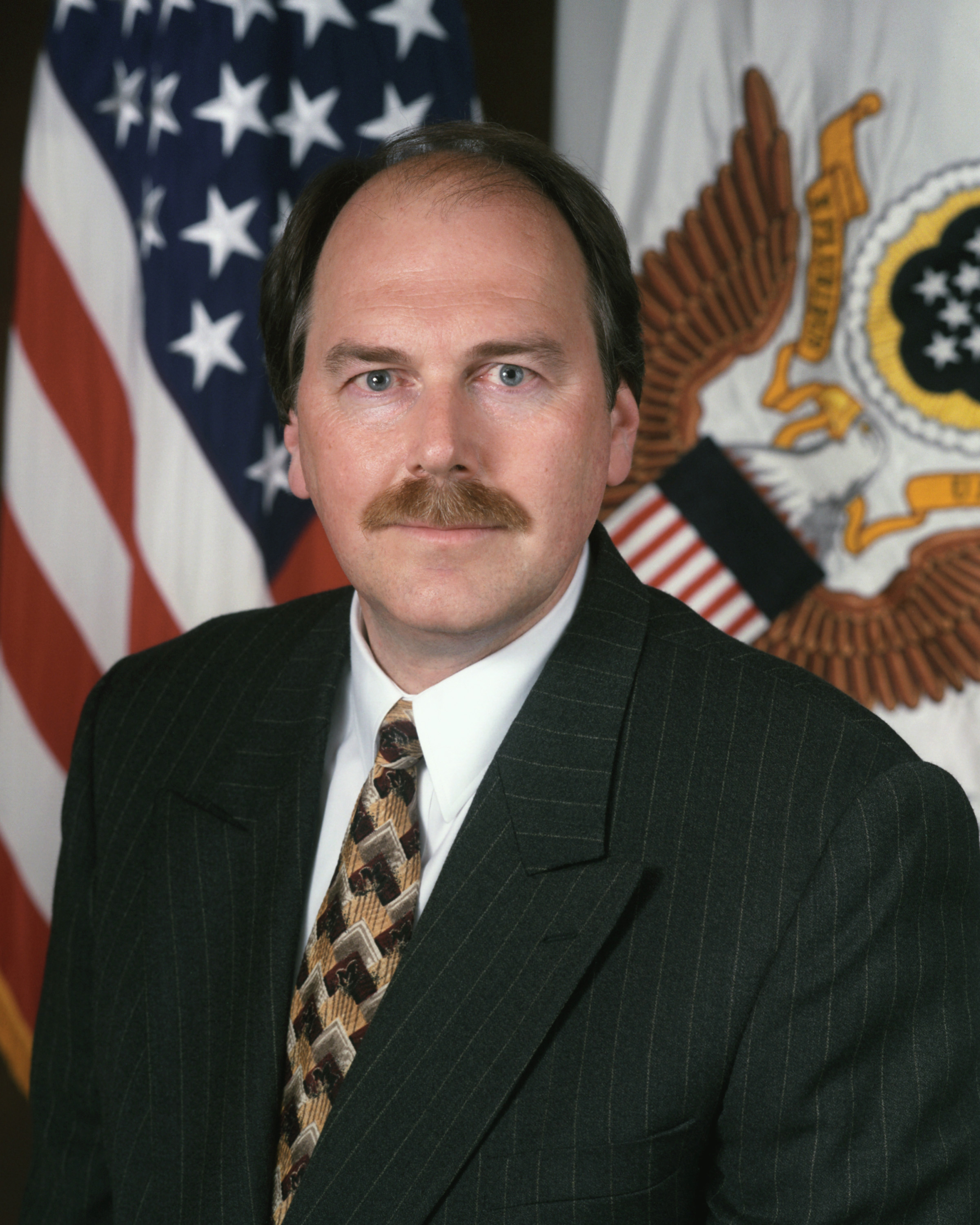Gregory R. Dahlberg
Gregory R. Dahlberg (born November 23, 1951 in Pickstown , South Dakota ) is an American politician and was Secretary of the Army .
Studies and professional career
Education
Dahlberg first completed studies in business administration and political science at Luther College in Iowa , which he completed in 1973 with a Bachelor of Arts in Business Administration (BA) and a Bachelor in Political Science (B.Pol.Sc.). He then completed postgraduate studies at American University in Washington, DC , which he completed in 1976 with a Masters in Public Administration .
Secretary of State and Congress Staff
After completing his studies, he began working as an administrative clerk in the Office of the Minister of Transport's Assistant for Budget and Programs. There he was responsible in particular for budget and financial resources for the construction of highways as well as for mass transportation.
In 1981 he became a member of the US House Committee on Appropriations , where he was responsible for overseeing financial resources for the United States Coast Guard , the Federal Aviation Administration , Amtrak , Conrail , the Federal Transit Administration , and National Highway Traffic Safety Administration and the Federal Highway Administration in the appropriate subcommittee was responsible.
In 1990 he became assistant to the chairman of the House Grants Committee and, as such, oversaw the thirteen budget approval subcommittees. During this time he was already instrumental in 1990 in the fundamental conference on five-year budget reform at Andrews Air Force Base . He was also an advisor to develop special funding mechanisms to expedite the Food and Drug Administration's drug screening process . Finally, he was involved in the development of special structures to finance Operation Desert Storm in 1990 and 1991.
In 1995 he became chief of staff of the Democratic Party in the subcommittee on defense spending of the grant committee. This gave him a leading role in negotiating the large defense budget for the various branches of the armed forces.
Secretary of the Army under President Bush
On May 23, 2000, he was named Under Secretary of the Army by President Bill Clinton . As such, he took second place in the civilian command.
After the end of Clinton's tenure, he became Secretary of the Army on January 20, 2001 . However, he resigned from this office on March 5, 2001.
Web links and background literature
General biographical information
Press articles
| personal data | |
|---|---|
| SURNAME | Dahlberg, Gregory R. |
| BRIEF DESCRIPTION | American lawyer, Secretary of the Army |
| DATE OF BIRTH | November 23, 1951 |
| PLACE OF BIRTH | Pickstown , South Dakota |

